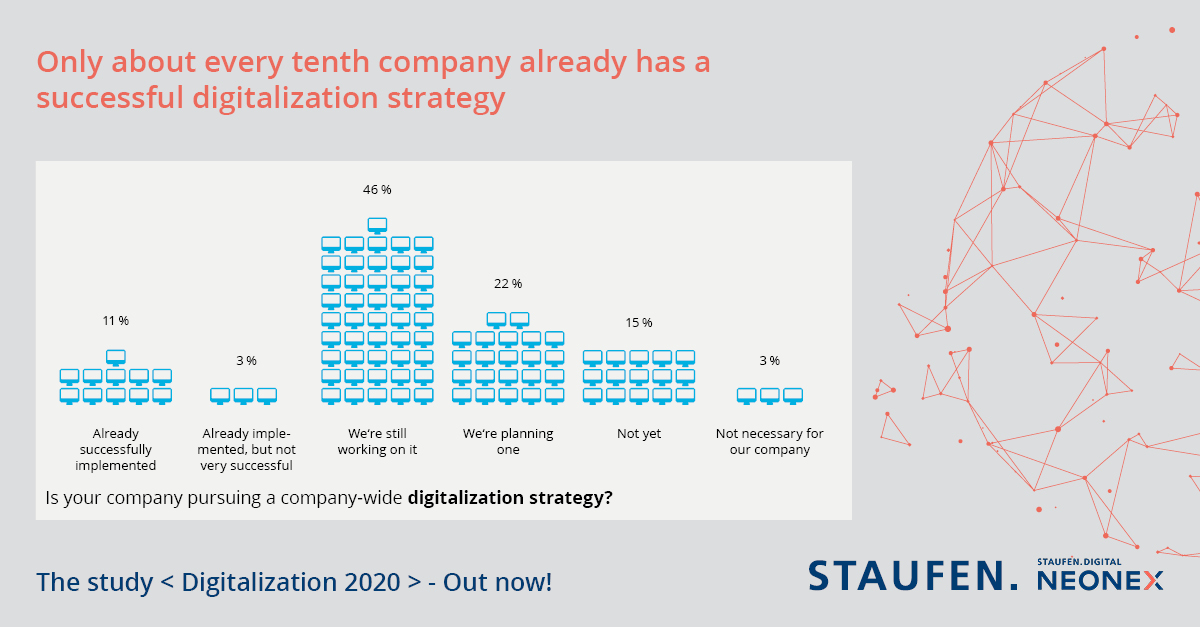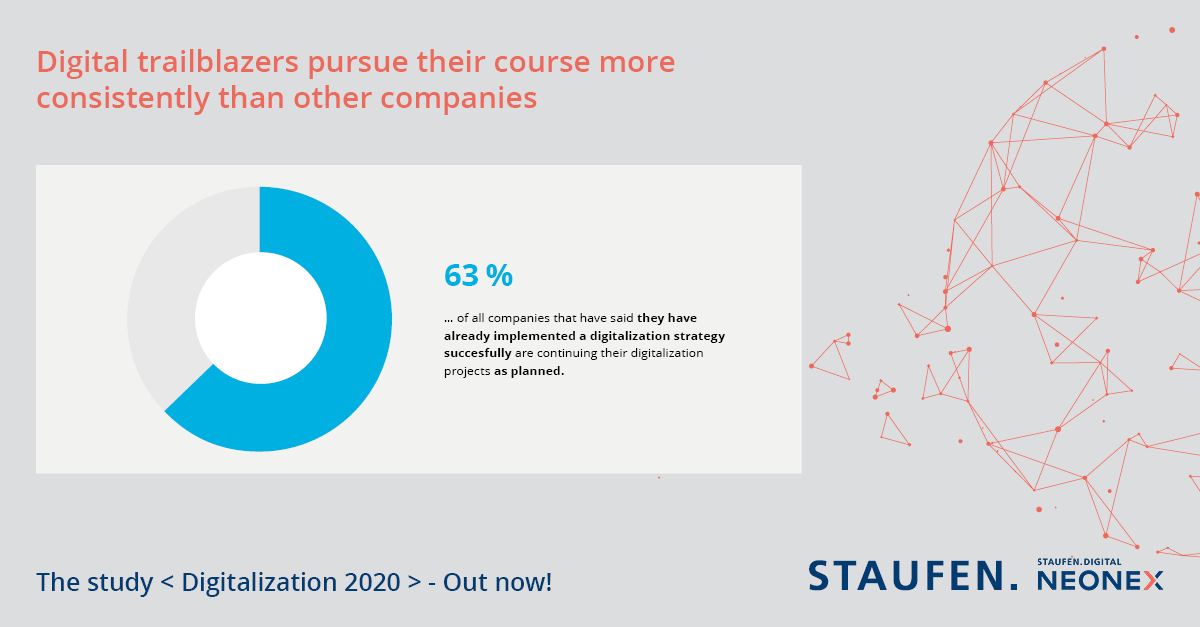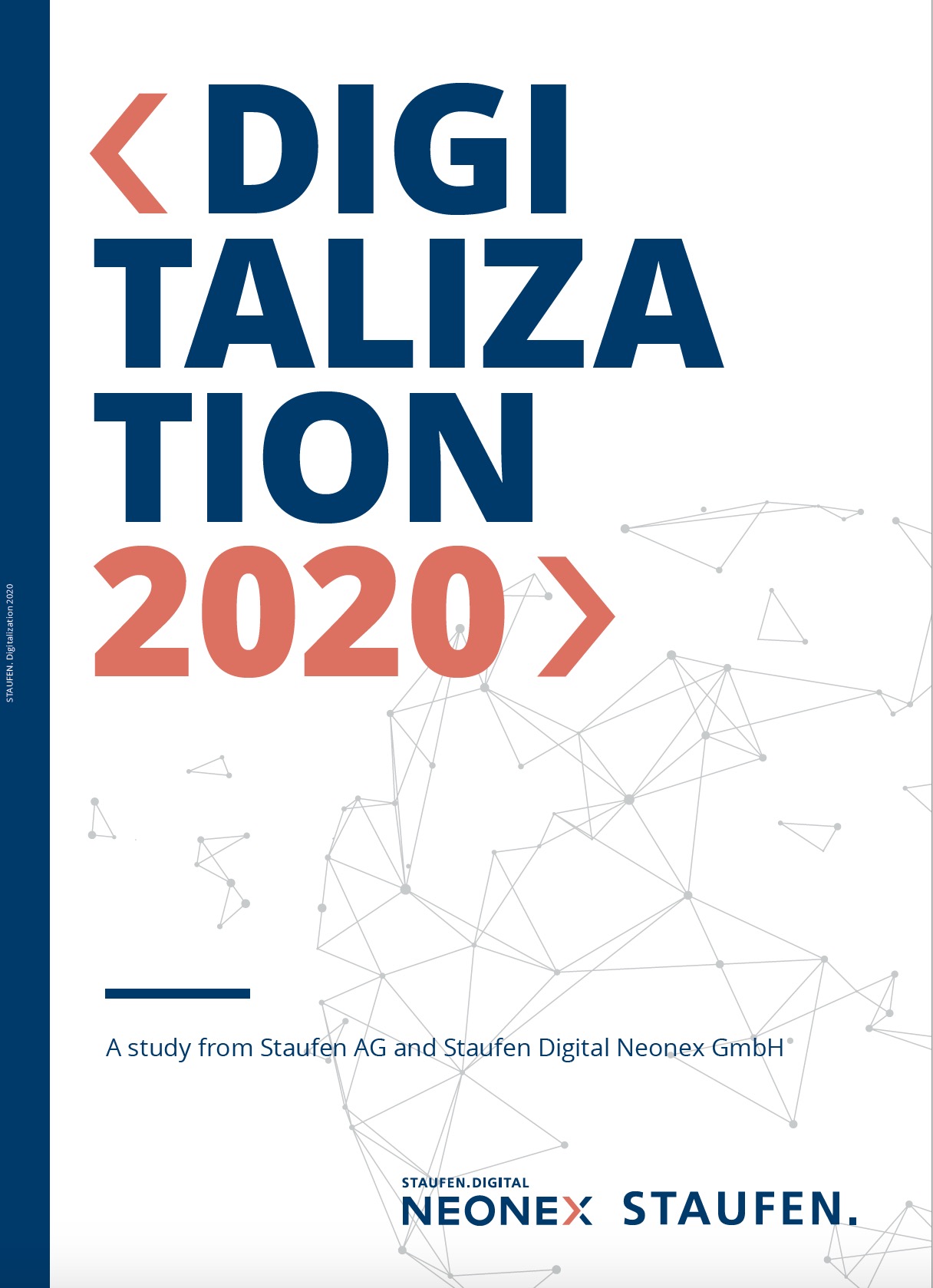Study Digitalization 2020
5. October 2020- Study
- Digitalization 2020

International Study "Digitalization 2020": Digital Maturity Determines Crisis Resistance / Every Fifth Digitalization Project Adversely Affected by the Covid-19 Pandemic
2020 has been and is still being significantly determined by the COVID-19 pandemic. The same applies to digitizing the global economy. As an example, according to the international study "Digitalization 2020", every fifth digitalization project (21 percent) has been stopped or is being fully restructured as a result of the months-long shutdowns. Companies with a high degree of digital maturity have overcome the COVID-19 crisis significantly better than their competitors. In August, the management consultancy Staufen, in collaboration with the experts from Staufen Digital Neonex, interviewed more than 1,100 companies for the study. Participants came from Germany, USA, China, Brazil, Mexico, Switzerland, Italy, Poland, Hungary, Czech Republic and Romania.
"The consequences of the COVID-19 pandemic are clearly apparent, but luckily, we are also seeing positive signals", said Wilhelm Goschy, CEO of Staufen AG, an international transformation consulting company. "Successful digitizers especially have been less affected by the crisis." Almost two thirds (63%) of the surveyed companies with a high degree of digital maturity were able to continue their previous planning for digital transformation undisturbed. This put the digital pioneers well ahead of the other companies, of which just under half (44%) were able to hold firm to their digital plans. "This shows that the degree of digital maturity determines a company's resilience to crises ", Goschy continued.
An additional indicator of the superior resilience exhibited by the digital pioneers: More than three quarters (78%) of these companies stated that digitalization had upheld their decision-making capabilities during the shutdown. Compared to the total number of respondents, only every second organization was able to reply to this in the affirmative. Successfully digitized companies also achieved high scores in response to their ability to act flexibly during the crisis (73%) and to continue with business operations (84%).
"The COVID-19 crisis brought about a learning effect in many companies. They recognized that it would be in their best interest to take advantage of digitalization as quickly as possible", said Jochen Schlick, Senior Partner at Staufen Digital Neonex. Almost two thirds (63%) of the companies surveyed intend to push ahead with plans to digitize their businesses going forward. "One major obstacle on the path in this direction, however, is the lack of digitalization expertise among the executives themselves" the digitalization expert Schlick pointed out. Almost two thirds (65%) of the companies admit to having deficits in this regard. In addition, many companies suffer from a lack of a strategy: Only every 10th company (11%) has a successful digitalization strategy, every second company (46%) is still in the implementation stage, while every fifth company (22%) has not yet emerged past the planning stage.
"Overall, our study shows that digitalization continues to be the number one strategy that companies around the globe are pinning their hopes on. There are only very few skeptics who do not believe in the improved viability of digitized companies in the future, "said Staufen CEO Goschy in his comments on the results of the study. So, digitalization is extremely popular, unlike "de-globalization", which has often been mentioned during the crisis: Three quarters of the companies surveyed (74%) do not believe that globalization plans will be scaled back due to the COVID-19 pandemic.







